Find Help
More Items From Ergsy search
-
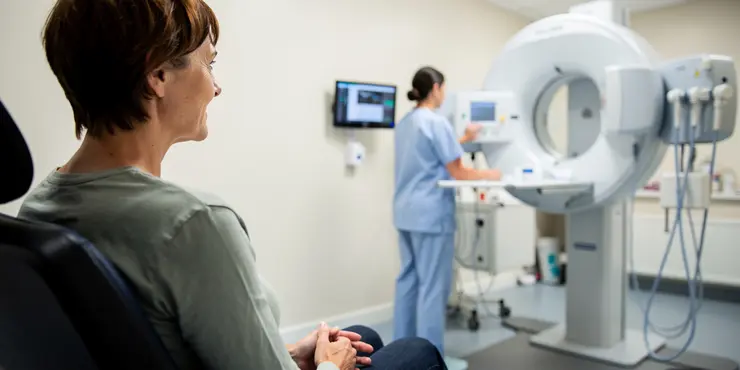
Radiotherapy to the Head and Neck: A Guide for patients and their carers
Relevance: 100%
-

Royal Berkshire NHS Foundation Trust: Radiotherapy for head and neck cancers
Relevance: 98%
-
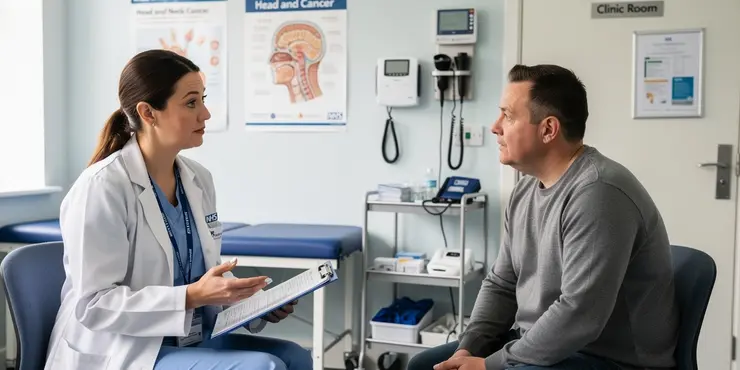
Head and Neck Cancer Diagnosis
Relevance: 84%
-
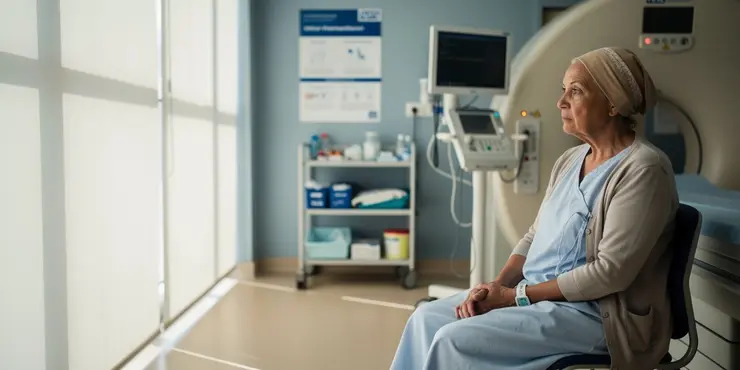
Having radiotherapy for breast cancer - 3 Videos
Relevance: 54%
-
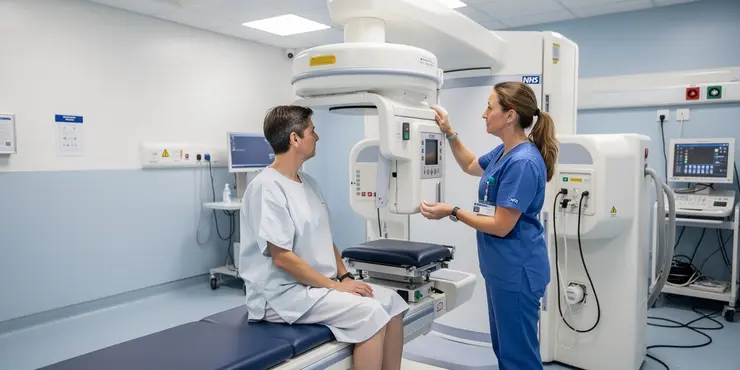
Cancer treatment: what happens during radiotherapy? | NHS
Relevance: 54%
-
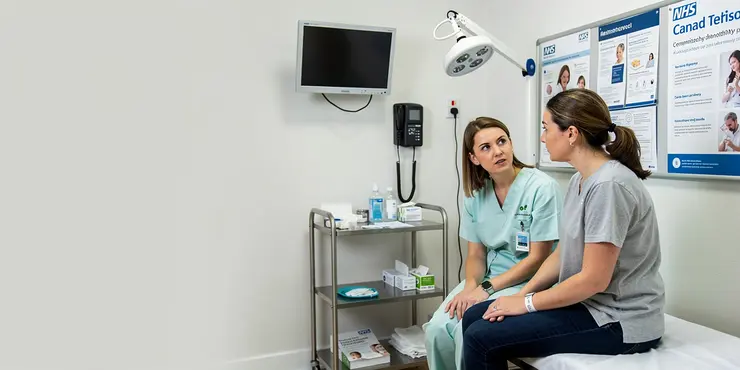
What is Radiotherapy, and its use in treatment for cancers?
Relevance: 52%
-
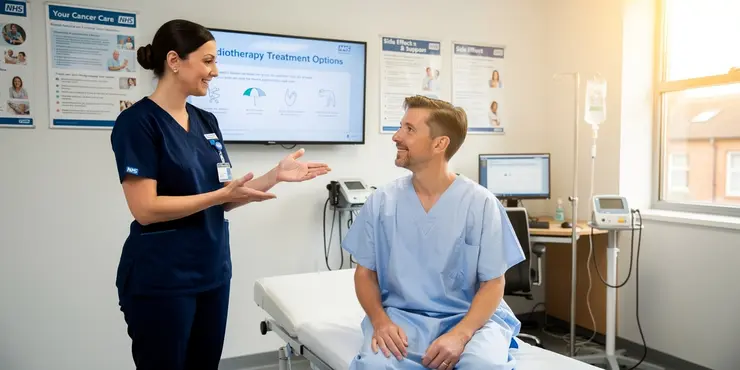
Royal Berkshire NHS Foundation Trust: Radiotherapy for prostate cancer
Relevance: 50%
-
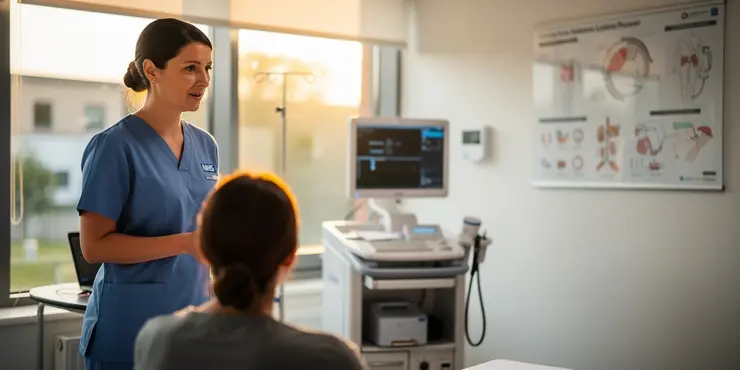
Radiotherapy Services at University Hospital
Relevance: 44%
-
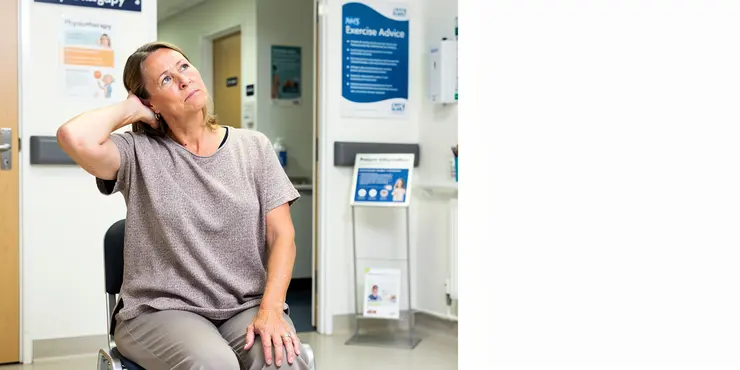
Neck Exercises
Relevance: 43%
-
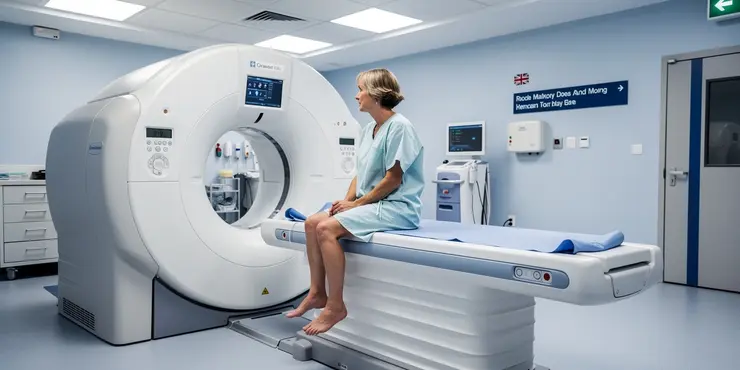
Radiotherapy CT scanner
Relevance: 43%
-
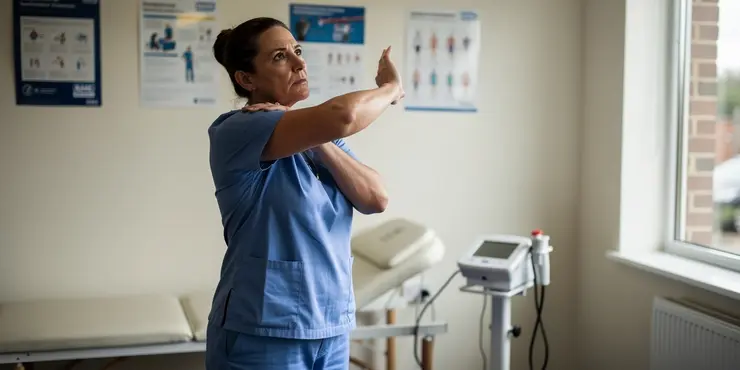
Neck Exercises
Relevance: 43%
-
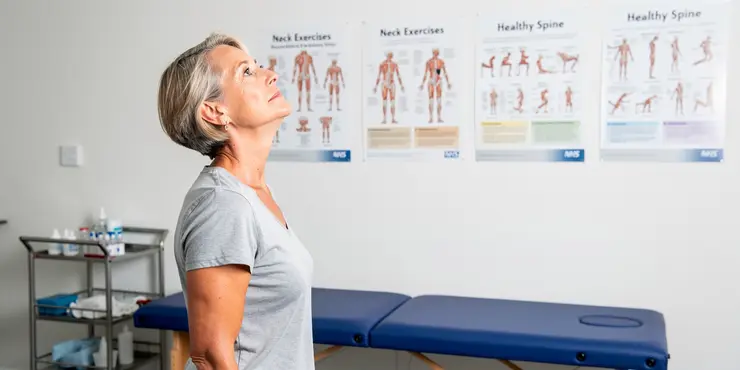
Neck Care Exercises
Relevance: 43%
-
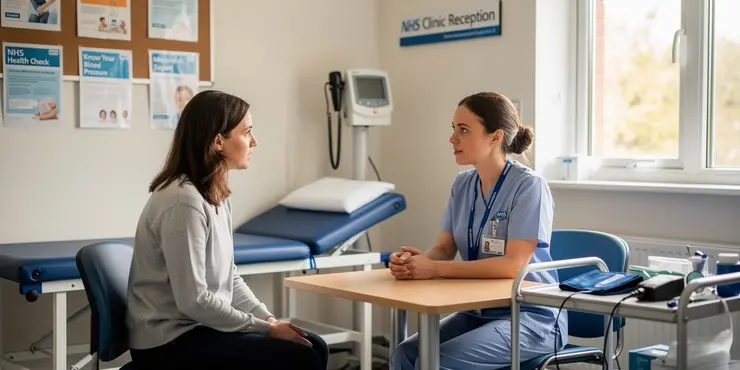
A Radiotherapy appointment in east and North Hertfordshire
Relevance: 41%
-
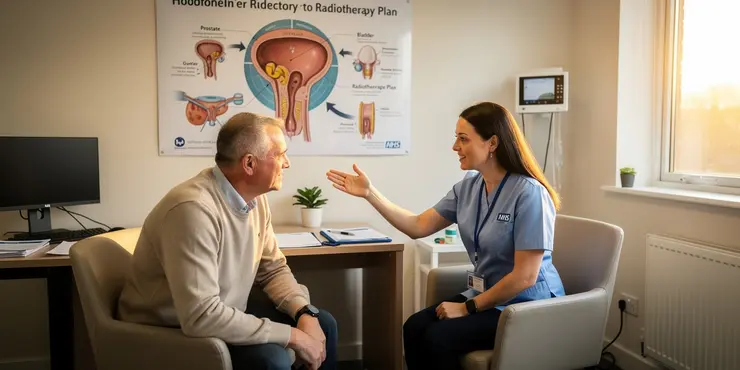
What is it like having Prostate Radiotherapy treatment?
Relevance: 39%
-
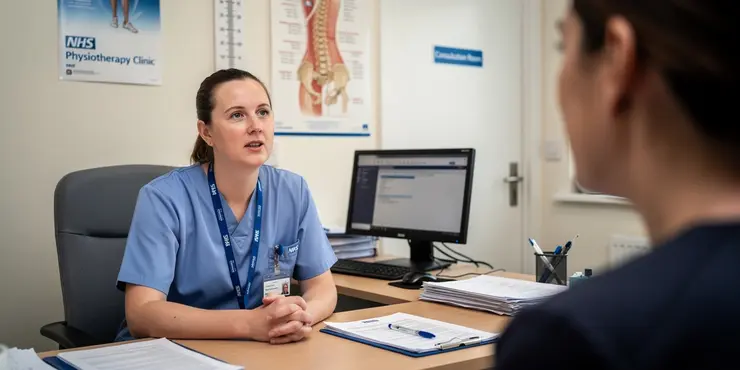
Advice on neck pain and whiplash
Relevance: 37%
-
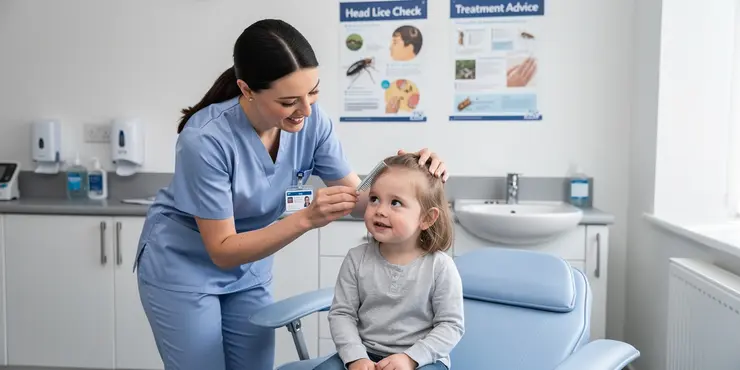
What are head lice?
Relevance: 36%
-
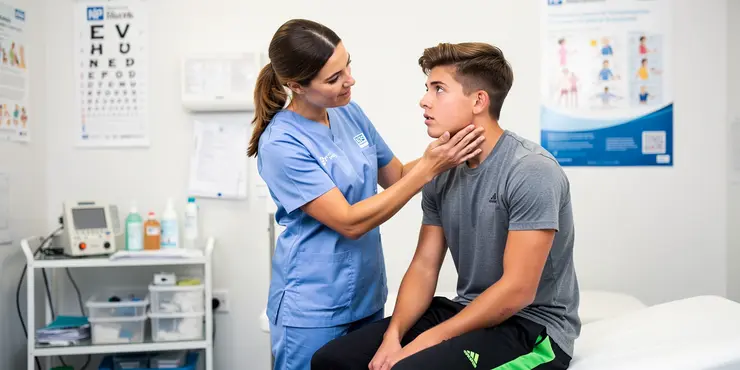
Can concussions occur without a direct blow to the head?
Relevance: 33%
-
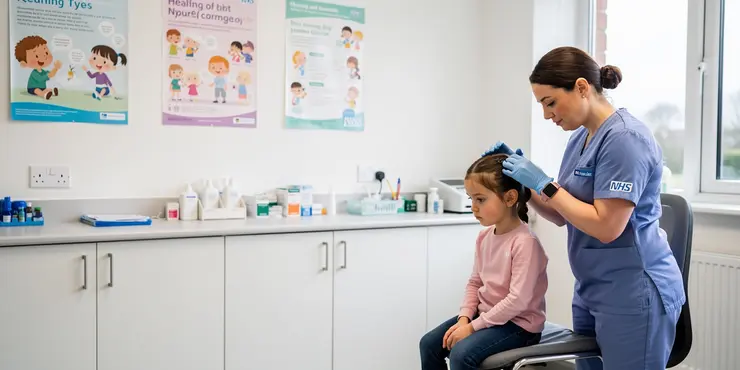
Are nits and head lice the same thing?
Relevance: 31%
-
Can baby sleep pillows prevent flat head syndrome?
Relevance: 30%
-
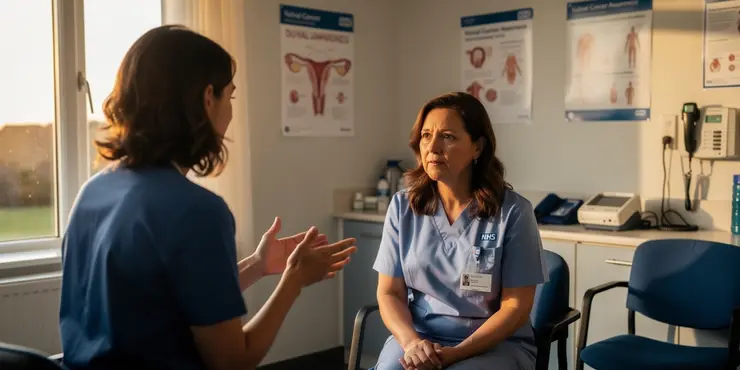
Vulval Cancer
Relevance: 28%
-
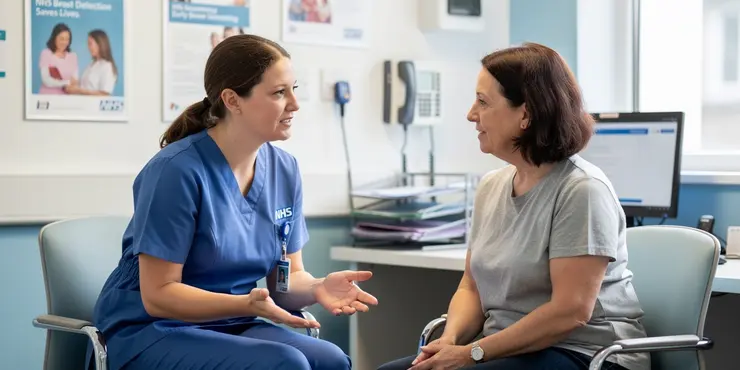
Breast cancer: testing and treatment | NHS
Relevance: 28%
-
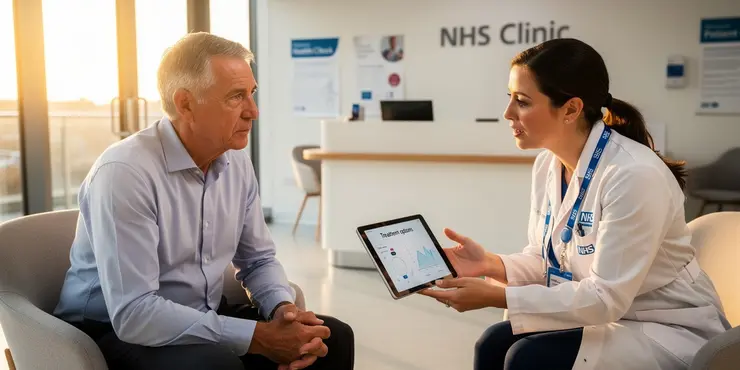
How is prostate cancer treated?
Relevance: 27%
-
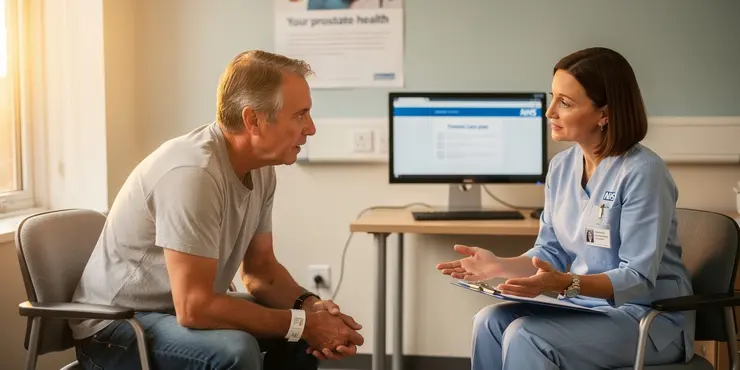
Treating prostate cancer
Relevance: 27%
-
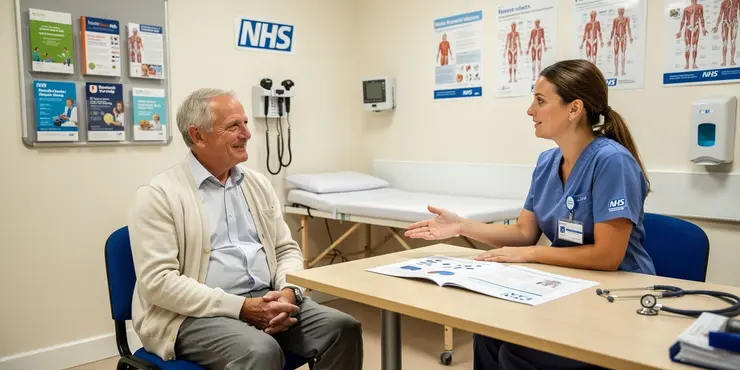
How is advanced prostate cancer treated?
Relevance: 25%
-
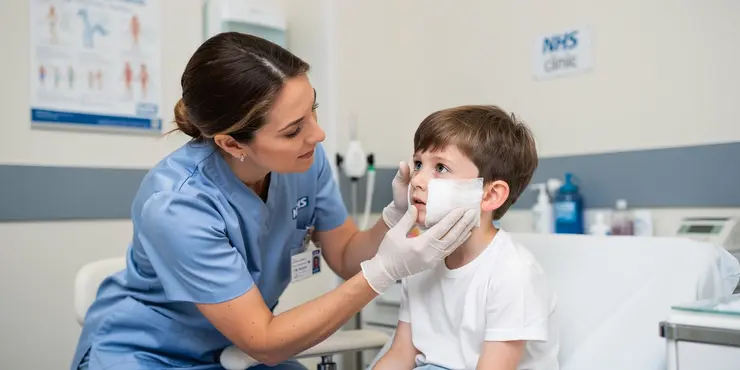
How to apply wet wrap bandaging to the head and face area.
Relevance: 25%
-
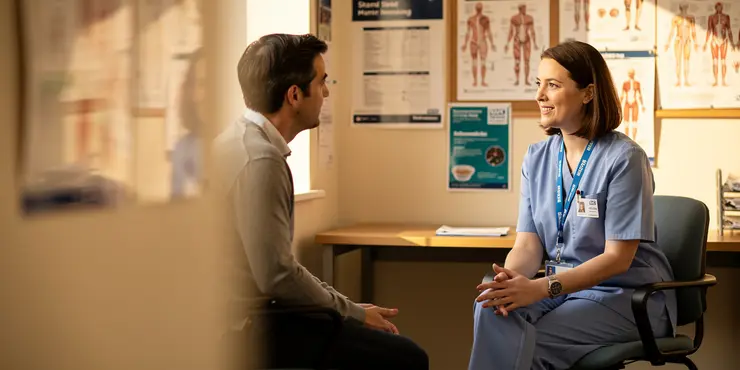
What treatment options are available for bowel cancer?
Relevance: 25%
-
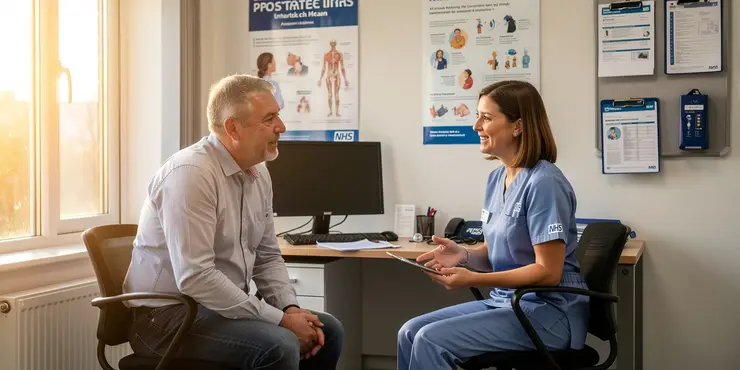
Can Abiraterone be used for early-stage prostate cancer?
Relevance: 25%
-
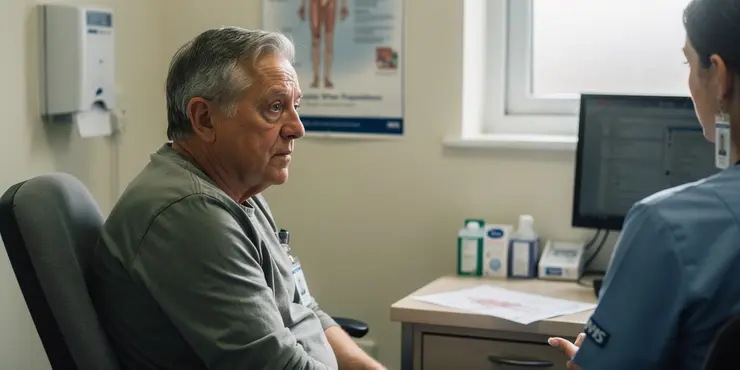
Hormone Therapy for prostate cancer
Relevance: 25%
-
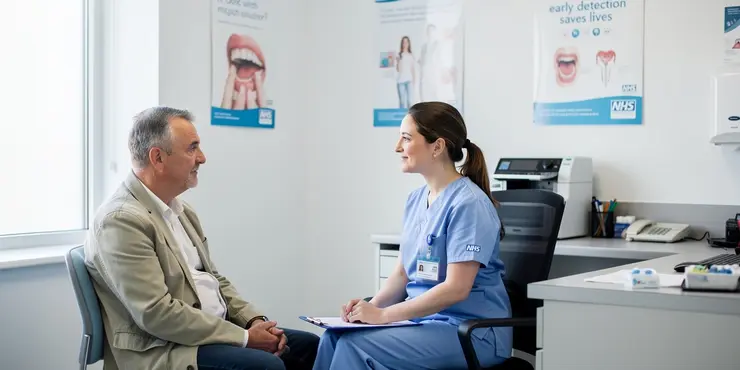
Mouth Cancer Awareness
Relevance: 25%
-
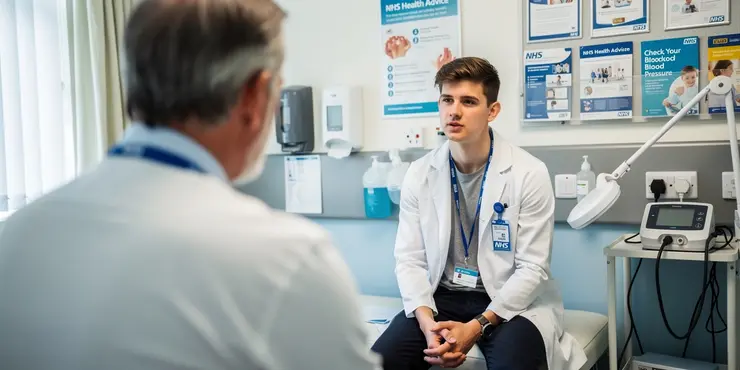
What is testicular cancer?
Relevance: 25%
-
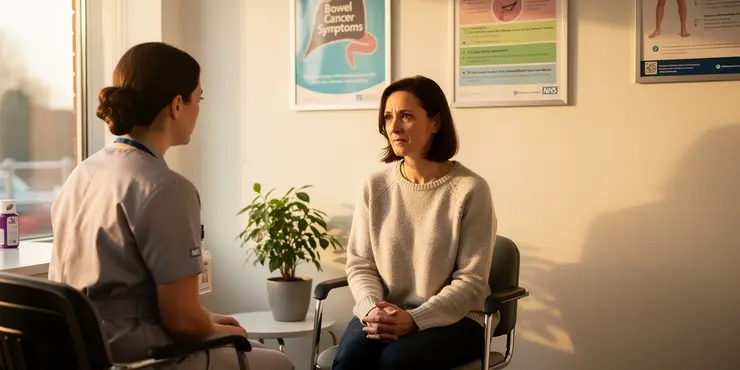
What is Bowel Cancer?
Relevance: 25%
-
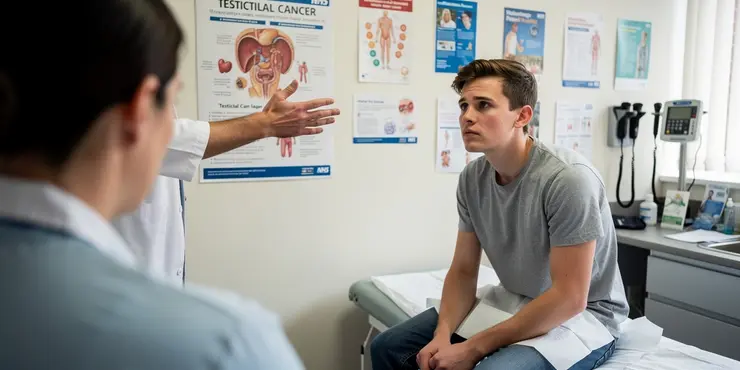
What is testicular cancer?
Relevance: 25%
-
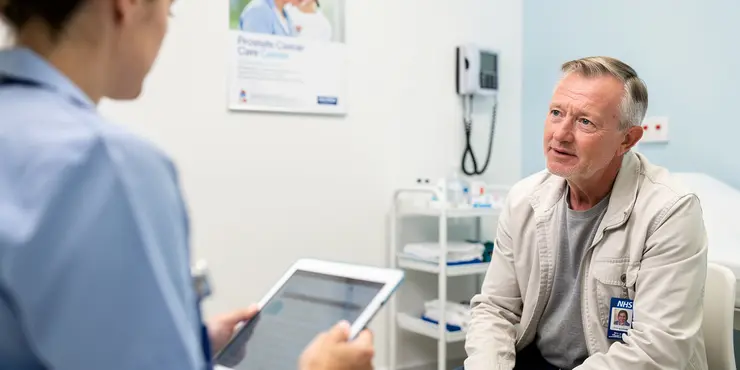
What is active surveillance in prostate cancer treatment?
Relevance: 24%
-
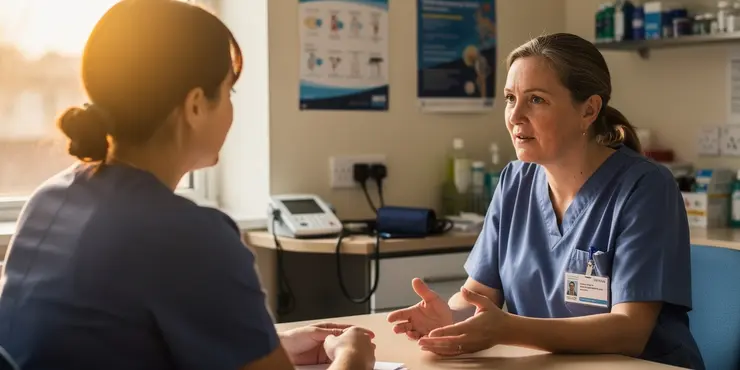
What are the side effects of bowel cancer treatment?
Relevance: 24%
-
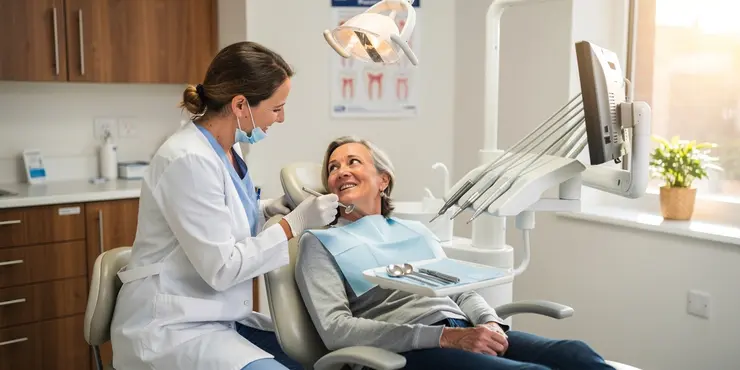
Mouth Cancer Infomercial
Relevance: 23%
-
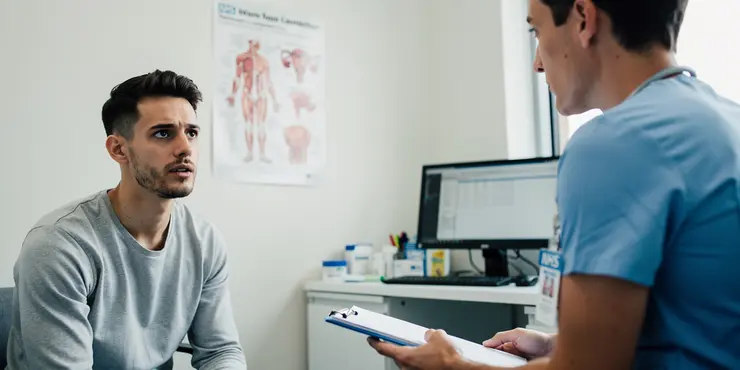
Is fertility affected by testicular cancer?
Relevance: 23%
-
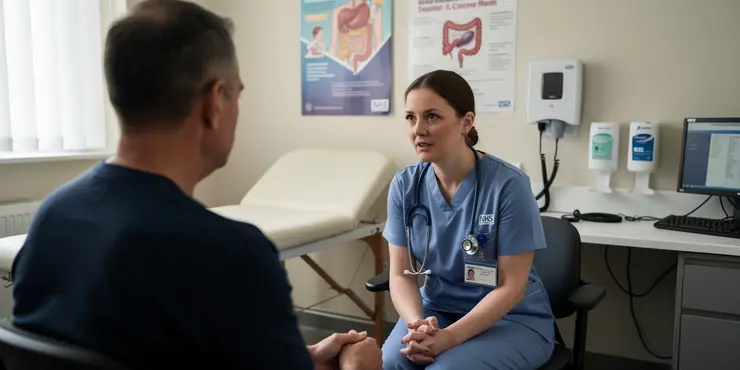
What is the survival rate for bowel cancer?
Relevance: 23%
-
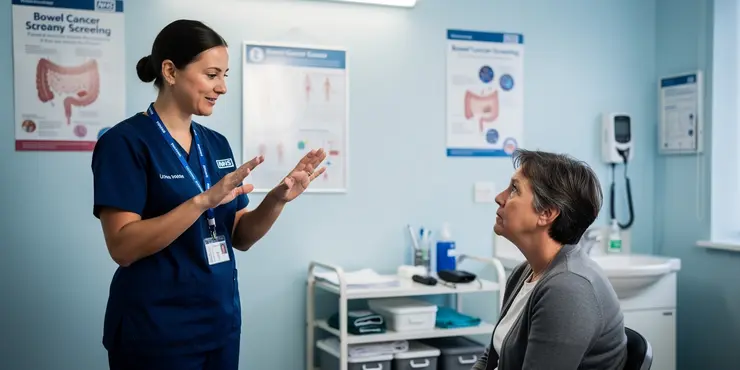
Learn about bowel cancer (British Sign Language version)
Relevance: 23%
-
What is the role of immunotherapy in prostate cancer treatment?
Relevance: 23%
-
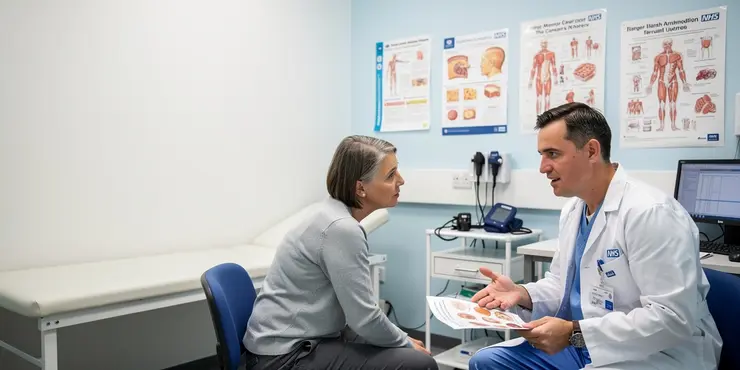
Skin cancer education
Relevance: 22%
Royal Berkshire NHS Foundation Trust: Radiotherapy for Head and Neck Cancers
Introduction to Head and Neck Cancer Treatment
The Royal Berkshire NHS Foundation Trust provides a comprehensive range of services for patients with head and neck cancers. These cancers can affect areas such as the mouth, throat, and nasal cavities. Treatment plans are tailored individually, with radiotherapy being a common and effective option. Radiotherapy uses high-energy radiation to target and destroy cancer cells, aiming to minimize damage to surrounding healthy tissue.Radiotherapy Process
Radiotherapy for head and neck cancers at the Royal Berkshire NHS Foundation Trust involves several steps: 1. **Initial Consultation**: Patients meet with oncologists to discuss their diagnosis and treatment options. The benefits and potential side effects of radiotherapy are thoroughly explained. 2. **Planning Phase**: A CT scan is performed to help devise a precise treatment plan. Advanced software is used to map out the exact areas needing radiation. 3. **Treatment Sessions**: Radiotherapy treatment is generally administered over several weeks. Each session lasts only a few minutes, but it’s critical for patients to attend all sessions for the best outcome.Side Effects and Supportive Care
While radiotherapy is effective, it may cause side effects such as mouth sores, dry mouth, and fatigue. The Royal Berkshire NHS Foundation Trust offers supportive care to manage these side effects, including: - **Nutritional Support**: Dietitians provide advice to help patients maintain nutrition during treatment. - **Speech and Language Therapy**: Therapists assist with preserving speech and swallowing functions. - **Psychological Support**: Counselling is available to help patients cope with emotional challenges.Follow-Up and Monitoring
After radiotherapy completion, patients undergo regular follow-up appointments. These visits are crucial for monitoring recovery and detecting any recurrence of cancer early. The medical team also assesses and manages any long-term side effects of the treatment.Conclusion
The Royal Berkshire NHS Foundation Trust is dedicated to delivering high-quality care for patients with head and neck cancers. Radiotherapy is a critical component of the multidisciplinary approach to treatment, aimed at achieving the best possible outcomes with minimal side effects. For more information or to schedule an appointment, patients are encouraged to visit the Trust’s official website or contact the oncology department directly.Royal Berkshire NHS Foundation Trust: Radiotherapy for Head and Neck Cancers
Introduction to Head and Neck Cancer Treatment
The Royal Berkshire NHS Trust helps people with head and neck cancers. These cancers can be in places like the mouth, throat, and nose. Each person gets a special treatment plan. Often, this plan includes radiotherapy. Radiotherapy uses strong energy to kill cancer cells but tries not to hurt healthy cells.Radiotherapy Process
When having radiotherapy for head and neck cancer, here are the steps you go through: 1. **Initial Consultation**: You will meet with doctors. They talk to you about your cancer and ways to treat it. They explain how radiotherapy can help and talk about any side effects. 2. **Planning Phase**: You will have a special scan called a CT scan. This helps doctors plan where exactly to target the radiotherapy. 3. **Treatment Sessions**: You will have radiotherapy over several weeks. Each session only takes a few minutes. It’s important to attend all sessions to get the best results.Side Effects and Supportive Care
Radiotherapy works well, but it can have side effects like sore mouth, dry mouth, and tiredness. The Trust helps you manage these side effects with: - **Nutritional Support**: Experts help you eat well during treatment. - **Speech and Language Therapy**: Therapists help you keep speaking and swallowing well. - **Psychological Support**: Counselling is available if you feel worried or upset.Follow-Up and Monitoring
After finishing radiotherapy, you will have regular check-ups. These are important to see if you are recovering and to catch any return of cancer early. The doctors also help with any lasting effects of the treatment.Conclusion
The Royal Berkshire NHS Trust wants to give the best care for head and neck cancer patients. Radiotherapy is an important part of the treatment to help you get better with fewer side effects. For more help or to make an appointment, visit the Trust's website or call the cancer department.Frequently Asked Questions
What is radiotherapy for head and neck cancers?
Radiotherapy uses high-energy rays to destroy cancer cells in the head and neck area while minimising damage to normal cells.
How is radiotherapy given for head and neck cancers?
Radiotherapy is typically given externally using a machine called a linear accelerator. Treatment is delivered over several weeks, Monday to Friday, with rest at weekends.
Will I need to stay in hospital during radiotherapy?
Most patients receive radiotherapy as an outpatient and do not need to stay in hospital. However, if additional treatments or support are required, a hospital stay might be necessary.
How long does each radiotherapy session last?
Each radiotherapy session generally lasts about 10–15 minutes. The actual time spent receiving the radiation is usually only a few minutes.
What are the side effects of radiotherapy for head and neck cancers?
Common side effects include sore throat, difficulty swallowing, dry mouth, taste changes, and fatigue. Side effects typically develop gradually and may continue after treatment has finished.
Can I eat and drink normally during radiotherapy?
Eating and drinking can become challenging due to side effects such as sore throat and dry mouth. It’s important to maintain a nutritious diet, and a dietitian or speech and language therapist may offer support.
Will radiotherapy make me lose my hair?
Radiotherapy may cause hair loss in the treatment area. For head and neck cancers, this generally means facial hair rather than hair on the scalp.
Can I continue to work during radiotherapy?
Many people continue to work during radiotherapy, but it often depends on the individual and the type of work. Fatigue is a common side effect, so adjustments to your work schedule might be necessary.
Will I be radioactive after my treatment?
No, external radiotherapy will not make you radioactive. It is safe to be around others, including children and pregnant women, after your treatment.
What should I do if I feel unwell during radiotherapy?
Inform your radiotherapy team if you feel unwell. They can provide advice, support, and treatment for any side effects or symptoms you may experience.
How do I care for my skin during radiotherapy?
Keep the skin in the treated area clean and moisturized. Use gentle products recommended by your healthcare team and avoid sun exposure to the treated area.
Will I need other treatments alongside radiotherapy?
Some patients may need additional treatments such as surgery or chemotherapy, depending on the specific type and stage of cancer. Your healthcare team will discuss the best treatment plan for you.
Can I drive during my radiotherapy treatment?
Most patients can drive themselves to and from radiotherapy appointments. However, fatigue or other side effects may impact your ability to drive safely, so it’s important to assess how you feel.
What follow-up care will I need after radiotherapy?
After completing radiotherapy, you will have regular follow-up appointments to monitor your recovery and manage any long-term side effects. These appointments help ensure any issues are identified and treated promptly.
How can I manage fatigue during radiotherapy?
To manage fatigue, balance rest with light activities, maintain a healthy diet, and stay hydrated. Gentle exercise can also help improve energy levels. Discuss any persistent fatigue with your healthcare team.
What is radiotherapy for head and neck cancers?
Radiotherapy is a way to treat cancer. It uses strong rays to kill cancer cells. This can help treat cancers in the head and neck area.
If you find it hard to read, you can use these tools to help:
- Text-to-speech: This tool reads the text out loud to you.
- Picture stories: These show pictures with the words to help you understand better.
- Audio guides: Listen to someone explain the information.
Radiotherapy is a special treatment. It uses strong rays to kill cancer in the head and neck. It tries not to hurt normal, healthy cells.
How do doctors use radiotherapy to treat head and neck cancers?
Doctors use special rays called radiotherapy to treat cancers in the head and neck.
Here is how they do it:
- Doctors aim the rays at the cancer to help stop it from growing.
- Patients might get the treatment at a hospital or clinic.
- Treatment can take several visits, but it usually does not hurt.
If you want help understanding this treatment, you can:
- Ask a nurse or doctor questions.
- Bring a family member or friend to support you.
- Use picture charts or videos to learn more.
Radiotherapy is when we use a special machine to treat the body from the outside. The machine has a long name: linear accelerator.
You get this treatment over a few weeks. You go for treatment from Monday to Friday. You can rest on the weekends.
If reading is hard, you can try these tips:
- Ask someone to read the text with you.
- Write down or say words you don't understand and ask for help.
- Use pictures to help explain ideas.
Do I have to stay in the hospital for radiotherapy?
No, most people do not have to stay in the hospital for radiotherapy. You will usually go to the hospital for treatment and then go home on the same day.
If you find it hard to remember your appointments, you can use a calendar or an alarm to help remind you.
Most people get radiotherapy and then go home. They do not need to stay in the hospital. But, if they need other help or treatments, they might have to stay in the hospital.
How long is a radiotherapy session?
A radiotherapy session usually takes about 10 to 30 minutes.
If you need help with reading, you can ask someone to read with you. You can also use a reading app that reads the words out loud.
Each time you go for radiotherapy, it usually takes about 10 to 15 minutes. The part where you get the radiation only lasts a few minutes.
What can happen to your body after radiotherapy for head and neck cancer?
Radiotherapy is a strong treatment for cancer in the head and neck. Sometimes, it can make your body feel different. This is called a side effect. It is important to know what might happen so you can feel better.
Some things you might feel are:
- Sore mouth or throat
- Tiredness
- Dry mouth
- Changes in taste
- Skin changes
It's a good idea to tell your doctor or nurse if you have side effects. They can help you.
You might find these ideas useful:
- Drink water often to help with a dry mouth.
- Rest often to help with tiredness.
- Try different foods if they taste funny.
- Use a special mouthwash to help a sore mouth.
Using these ideas might make you feel better. Always ask for help if you need it.
Some common side effects are a sore throat, trouble swallowing, dry mouth, changes in taste, and feeling tired. These side effects usually start slowly and can keep going even after treatment is done.
If you need help reading, you can try using audiobooks or ask someone to read with you. You can also take breaks while reading if you need to.
Can I eat and drink like usual during radiotherapy?
Yes, you can usually eat and drink normally during your treatment. Radiotherapy is a strong treatment for cancer. It is important to keep your body strong.
Here are some tips:
- Try to eat healthy foods like fruits, vegetables, and proteins. They help your body stay strong.
- Drink plenty of water. It is good to stay hydrated.
- If you have trouble eating, tell your doctor. They can help you.
Sometimes, people feel sick or have a sore mouth during radiotherapy. If this happens, let your doctor know. They might give you special drinks or medicines to help you feel better.
Sometimes it can be hard to eat and drink because of things like a sore throat or dry mouth. It's important to eat healthy food. A dietitian or a speech and language therapist can help you with this.
Will I lose my hair if I have radiotherapy?
Radiotherapy is a treatment that uses strong beams to kill bad cells in the body. Sometimes, it can make hair fall out.
If the radiotherapy beams are near your head, you might lose hair on your head. If the beams are on another part of your body, you might lose hair there.
Not everyone who has radiotherapy loses hair. It depends on where the beams are used and how strong they are.
If you are worried about losing hair, talk to your doctor or nurse. They can help you understand what might happen.
Using a soft brush and gentle shampoo can help take care of your hair. Some people find hats, scarves, or wigs helpful if they lose hair.
When you have radiotherapy, it might make you lose hair where you are having treatment. If you are getting treatment on your head or neck, it usually means you might lose hair on your face, not on your head.
Helpful Tips:
- Ask your doctor or nurse to explain any words you don't understand.
- Use simple words and short sentences to make reading easier.
- Take breaks if you feel tired or confused.
- Try using a ruler or your finger to keep your place when reading.
Can I work while having radiotherapy?
Yes, you might be able to work while having radiotherapy. Everyone is different. Some people feel okay and can still go to work. Others might feel too tired or unwell.
Here are some things that can help you:
- Talk to your doctor. They can tell you what to expect.
- Tell your boss and workmates. They can help you if you need time off.
- Listen to your body. Rest when you feel tired.
- Try doing some relaxing things. This can help you feel better.
Lots of people keep working while having radiotherapy. But it depends on each person and what kind of job they have. Feeling very tired is normal, so you might need to change your work hours.
Will I have radio waves in me after my treatment?
No, you will not be radioactive after your treatment. This means you will not give off any harmful radio waves. You are safe to be around others. If you have questions, ask your doctor.
No, getting radiotherapy on the outside of your body will not make you give off radiation. It is safe to be near other people, like kids and pregnant women, after your treatment.
What to Do if You Feel Sick During Radiotherapy
If you feel sick while having radiotherapy, tell a doctor or nurse. They are there to help you feel better.
Here are some tips:
- Rest as much as you can.
- Drink plenty of water.
- Eat small meals to keep your strength up.
- Tell someone how you feel. Talking can help.
Ask about things that can make you feel better, like soft music or deep breathing. These can help you relax.
Tell your radiotherapy team if you feel sick. They can give you help and tell you what to do. They can also help if you have any side effects or feel bad in any way.
How can I look after my skin during radiotherapy?
Here are some simple tips to care for your skin:
- Keep it clean: Wash your skin gently with warm water. Use a soft cloth.
- Be gentle: Don't scrub hard or use strong soaps.
- Moisturize: Use a gentle cream to keep your skin soft. Ask your nurse which one is best.
- Protect from the sun: Wear loose clothes and a hat. Use sunscreen if you go outside.
- Watch for changes: Tell your doctor if your skin gets sore or changes.
If you find it hard to care for your skin, ask a friend or family member to help you.
Make sure the skin where you got treatment is clean and soft. Use special skin creams that your doctor says are okay. Stay out of the sun on that part of your skin.
Will I need other treatments with radiotherapy?
When you have radiotherapy, you might need other treatments too. It depends on what your doctor says is best for you.
Here are some things that can help:
- Ask your doctor lots of questions if you are unsure.
- Bring someone with you to your doctor visits for support.
- Write things down to help you remember.
Some people might need more treatment, like an operation or strong medicine, to help fight cancer. It depends on the type and how serious the cancer is. The doctors and nurses will talk to you about the best way to help you get better.
Can I drive while having radiotherapy treatment?
Talk to your doctor about driving when you have radiotherapy.
Radiotherapy can make you feel very tired. If you feel too tired, ask someone you trust to help you with driving.
Here are some things that can help:
- Rest when you can.
- Ask family or friends to drive you.
- Use a taxi or public transport if you feel tired.
Many people can drive themselves to radiotherapy appointments. You can also drive yourself back home. But sometimes, the treatment can make you very tired or have other side effects. This can make driving hard.
It’s important to pay attention to how you feel before you decide to drive.
If you are not sure, ask a friend or family member for help. You can also use a taxi or a ride-sharing service.
What care do I need after my radiotherapy?
After your radiotherapy, you will need to see your doctor for check-ups. These are to make sure you are healing well.
Here are some things that can help you:
- Calendar: Use a calendar or diary to remember your appointments.
- Talk to your doctor: Ask questions if you don't understand something.
- Support: Bring someone with you to appointments if it helps.
After you finish your radiotherapy, you will go to the doctor for regular check-ups. These visits are to see how you are getting better and to help with any problems from the treatment. Going to these check-ups makes sure any problems are found and fixed quickly.
How can I feel less tired during radiotherapy?
Here are some simple ideas:
- Rest It helps to take breaks when you need them. Lie down or nap if you are tired.
- Eat healthy Try to eat good food like fruits and vegetables. They help keep your energy up.
- Drink water Make sure you drink enough water to stay hydrated.
- Light exercise A short walk or gentle stretching can help you feel better.
- Talk to someone Share your feelings with a friend or family member. It can help you feel supported.
Remember to ask your doctor for more advice if you need it.
To help you feel less tired, try to rest but also do some easy activities. Eat good food and drink lots of water. Easy exercises like walking can give you more energy. If you still feel very tired, talk to your doctor or nurse.
Useful Links
This website offers general information and is not a substitute for professional advice.
Always seek guidance from qualified professionals.
If you have any medical concerns or need urgent help, contact a healthcare professional or emergency services immediately.
Some of this content was generated with AI assistance. We’ve done our best to keep it accurate, helpful, and human-friendly.
- Ergsy carfully checks the information in the videos we provide here.
- Videos shown by Youtube after a video has completed, have NOT been reviewed by ERGSY.
- To view, click the arrow in centre of video.
- Most of the videos you find here will have subtitles and/or closed captions available.
- You may need to turn these on, and choose your preferred language.
- Go to the video you'd like to watch.
- If closed captions (CC) are available, settings will be visible on the bottom right of the video player.
- To turn on Captions, click settings .
- To turn off Captions, click settings again.
More Items From Ergsy search
-

Radiotherapy to the Head and Neck: A Guide for patients and their carers
Relevance: 100%
-

Royal Berkshire NHS Foundation Trust: Radiotherapy for head and neck cancers
Relevance: 98%
-

Head and Neck Cancer Diagnosis
Relevance: 84%
-

Having radiotherapy for breast cancer - 3 Videos
Relevance: 54%
-

Cancer treatment: what happens during radiotherapy? | NHS
Relevance: 54%
-

What is Radiotherapy, and its use in treatment for cancers?
Relevance: 52%
-

Royal Berkshire NHS Foundation Trust: Radiotherapy for prostate cancer
Relevance: 50%
-

Radiotherapy Services at University Hospital
Relevance: 44%
-

Neck Exercises
Relevance: 43%
-

Radiotherapy CT scanner
Relevance: 43%
-

Neck Exercises
Relevance: 43%
-

Neck Care Exercises
Relevance: 43%
-

A Radiotherapy appointment in east and North Hertfordshire
Relevance: 41%
-

What is it like having Prostate Radiotherapy treatment?
Relevance: 39%
-

Advice on neck pain and whiplash
Relevance: 37%
-

What are head lice?
Relevance: 36%
-

Can concussions occur without a direct blow to the head?
Relevance: 33%
-

Are nits and head lice the same thing?
Relevance: 31%
-
Can baby sleep pillows prevent flat head syndrome?
Relevance: 30%
-

Vulval Cancer
Relevance: 28%
-

Breast cancer: testing and treatment | NHS
Relevance: 28%
-

How is prostate cancer treated?
Relevance: 27%
-

Treating prostate cancer
Relevance: 27%
-

How is advanced prostate cancer treated?
Relevance: 25%
-

How to apply wet wrap bandaging to the head and face area.
Relevance: 25%
-

What treatment options are available for bowel cancer?
Relevance: 25%
-

Can Abiraterone be used for early-stage prostate cancer?
Relevance: 25%
-

Hormone Therapy for prostate cancer
Relevance: 25%
-

Mouth Cancer Awareness
Relevance: 25%
-

What is testicular cancer?
Relevance: 25%
-

What is Bowel Cancer?
Relevance: 25%
-

What is testicular cancer?
Relevance: 25%
-

What is active surveillance in prostate cancer treatment?
Relevance: 24%
-

What are the side effects of bowel cancer treatment?
Relevance: 24%
-

Mouth Cancer Infomercial
Relevance: 23%
-

Is fertility affected by testicular cancer?
Relevance: 23%
-

What is the survival rate for bowel cancer?
Relevance: 23%
-

Learn about bowel cancer (British Sign Language version)
Relevance: 23%
-
What is the role of immunotherapy in prostate cancer treatment?
Relevance: 23%
-

Skin cancer education
Relevance: 22%


